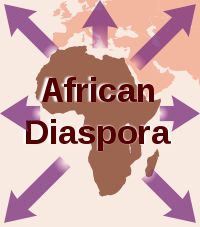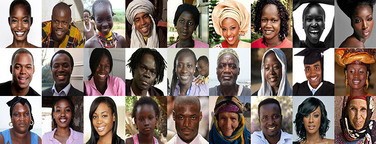Advantanges And Disadvantages Of Diaspora Africans Moving Back To The Homeland
The slave trade has taken a lot of things from Africans as a whole. The loss of generations of capable young men and women created a huge gap that will take light years before Africa can recover. This is a loss that even the migration of diaspora Africans back home cannot replace. But it is important to note that this will be a perfect step in the right direction where it to happen.
Let us, therefore, examine the advantages and disadvantages that come with Diaspora Africans moving back home.
THE PROS:
They Will Feel More Welcomed
Like it or not, the West has continued to be plagued by discrimination cases of people of color. However, the opposite will be the case when these people of African descent return home. They will be made to feel at home as they are in the midst of people who look like them and people who wouldn’t judge them by their skin color or religion and beliefs. This is one of the most incredible benefits of Africans returning home to Africa.
Positive Influence on Development
We can agree that the number of diaspora Africans in different fields in the West can rival that of the natives if not overcome them. This displays the level of ingenuity and innovation that African is known for. A move back home will only mean that diaspora Africans will be coming home with a wealth of experience from the countries in the West.
The majority of these countries in America and Europe are developed and advanced in technology, medicine, engineering, even in handwork and skills. Bringing these levels of experience will be massive for the growth of the African continent to become what its rich resources have meant it to be.
Political Influence
Despite the independence of Africa from colonialism, the West continues to have massive control over its political structure due to its rich natural resources. The Congo, for instance, should be one the wealthiest countries in the world, but they lack the resources (both human and equipment) to tap generously from their gold mine. This left them under the control of the greedy West, who continues to milk them dry.
Now imagine if the African Congolese descendants in several parts of the West return home. They would surely get the necessary human resources to manage their natural resources for their development.
The Rich Cultural Impact and Dynamism
The African culture is beautiful in that anyone can be part of it no matter where you come from. So Diaspora Africans moving home will only strengthen their sense of belonging towards their culture, and they can also impact them with the culture they’re used to in the West. This will bring a rich mix that will change Africans’ lives and enlighten and enrichen their culture further.
THE CONS:
The Change in Environment may be Negative
Despite the majestic strides that have been made in Africa in recent years, she continues to lack some basic amenities. For example, some communities in Africa can still not get access to good drinking water and electricity. The wide gap in the way of living that they’re used to in the West may be much for migrating diaspora Africans to cope with. Even the effectiveness of security may not be as guaranteed as it is in the West.
This is a massive gap that diasporas may find hard to cope with.
The Cultural Gap
Most African societies still practice certain cultures that the West may consider strange and archaic. Despite the eagerness of some diaspora Africans to belong and practice these cultures, it will test their coping mechanism in ways they have never seen before. This is one of the enormous impediments that may deter many of them from returning home.
Leadership Structure
Some African societies still very much practice a monarchical system of leadership that might clash with the liberal life of the West. This can impede any diaspora African who has never subjugated to anyone in their life. Moreover, getting used to such a way of living can be shocking for anyone coming back home to Africa.
To Summarize Briefly
It’s not ideal for diaspora Africans to be filled with dreamy versions of the motherland without first grasping the implications that such a change will have on them. Coming home is a great deal, but staying home in peace and harmony is the goal. Click here for more information on relocating to Africa.





